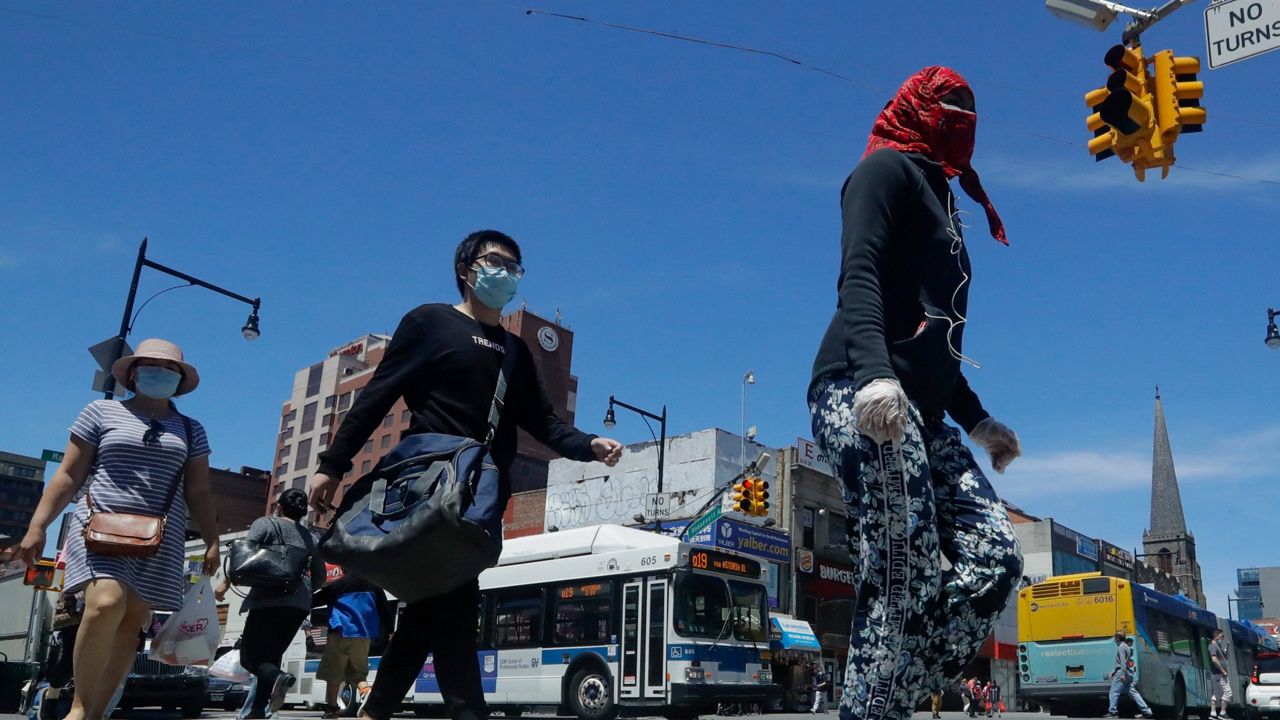A Queens neighborhood hit hard by the novel coronavirus pandemic and packed with small, family-owned businesses saw the least success getting Paycheck Protection Program loans in the entire city, federal data show.
Flushing, home to nearly 2,400 businesses that were eligible for assistance from the U.S. Small Business Administration during the pandemic, saw just 913 business owners, or about 38 percent, actually receive a check, according to data released this week.
“During the first wave, everybody jumped on it,” said DianSong Yu, executive director of the Flushing Business Improvement District. “They were rejected.”
Meanwhile Greenpoint, a trendy neighborhood in northern Brooklyn with about 1,800 small businesses, was approved for nearly 1,400 PPP loans, or about 78 percent, according to SBA data released this week.
In fact, three affluent Brooklyn neighborhoods saw their small businesses well supplied with loans, with Park Slope and Brooklyn Heights also seeing success rates in the 70s, the best in all of New York City.
City Council Member Stephen Levin, member of the Committee on Small Business and Greenpoint’s representative, said he was surprised at the Brooklyn neighborhood’s success but ventured a guess as to why it happened.
“The first theory that comes to mind is that Greenpoint, in the last five years, put together its own chamber of commerce,” Levin said. “It’s got a lot of coordination among a lot of longtime community members.”
That connection between business and bank may be responsible for a trend that saw thousands of businesses in the outskirts of the outer boroughs go without federal aid, according to David Dyssegaard Kallick, Deputy Director of the Fiscal Policy Institute.
“One of the big stories of the PPP loans is that people with preexisting relationships with the banks have had a much easier time applying for loans,” Kallick said.
“Flushing has very high percentages immigrant-owned businesses where they don’t have a bank with a good long standing relationship…They’re kind of shut out.”
Kallick described the first round of loan applications — which launched in early April as COVID-19 was reaching its peak in New York City — as a “wild, wild west,” that saw scared business owners banging down the doors of their banks, worried the money would run out.
Banks ultimately prioritized applications that were the easiest to process, which may be why small businesses in ritzier neighborhoods saw greater success, Kallick said.
“You see it in Greenpoint and Park Slope where people might have slicker spreadsheets,” Kallick said. “Given the way the loans were structured, it’s pretty predictable.”
In Flushing, Yu said small business owners who saw little success working with small, community-run banks eventually turned to a more reliable outlet for help.
“People kind of like to use their own family resource,” Yu said. “They borrowed from their relatives because it was much easier, much faster, to tap into that financial resource.”
Yu also noted that many businesses may have opted not to apply for the loan because of requirement that mandates business owners keep paying their workers.
New York City has been reopened for weeks, but many of Flushing’s iconic restaurants are only seeing about 10 percent of their pre-pandemic businesses revenue, according to Su.
“That’s not enough,” Yu said. “They realized that it might not be worth it.”
While the Flushing BID leader, the council member and economic institute director all view the situation from different perspectives, each noted that hope for New York City’s small businesses comes with the low numbers of new COVID-19 cases.
New York City remains well below the state’s reopening thresholds with 299 new COVID-19-related hospitalizations and 2 percent of those tested received positive results Tuesday, according to the Mayor’s office.
Yu hopes the city’s next big project will be helping local businesses woo back their customers because he’s not sure his district can survive the next three months without them.
“The small businesses need to have the consumers,” Yu said. “We sorely miss you guys.”



